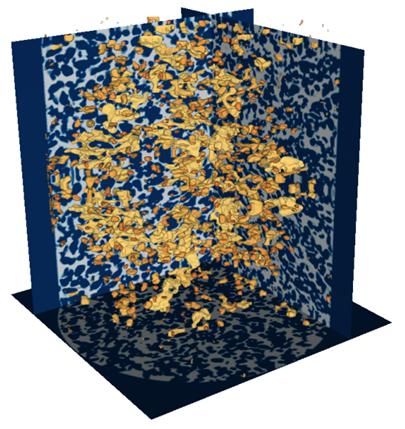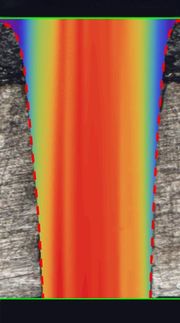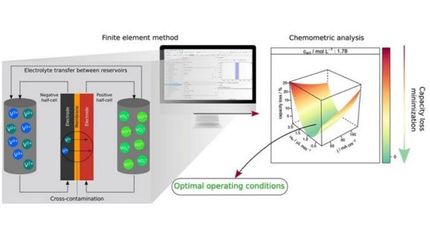Researchers mine information from next-generation subsurface flow simulations
Advertisement
Ask a geoscientist how he or she feels about the phrase, "out of sight, out of mind," and you likely will meet some serious resistance. The scientist likely would explain that learning how different materials interact with one another below the Earth's surface is of the utmost importance.

Simulations performed on Titan enable detailed tracking of two fluid phase systems during flow through porous media. In this case, the behavior of oil ganglia (yellow) can be observed as they are mobilized in an experimentally-imaged sandstone (the solid part of the sandstone is shown in blue).
James McClure, Virginia Tech
Indeed, a robust research community of theoreticians, experimentalists, and computational scientists has been collaborating to gain greater insight into how different states, or phases, of matter interact with one another when they are below ground.
"These fluid flows affect society because of our desire to mitigate climate change using carbon sequestration, to extract energy resources from the subsurface, and to remediate the effects of environmental contamination," said James McClure, a computational scientist at Virginia Tech University.
Oil production, subsurface contamination, and carbon sequestration, among other research fields, share a common thread - they deal with multiphase flows, or situations where materials are flowing close together in different phases. They also pertain to when the flow is composed of materials that have a common phase with a different chemical makeup that prevents mixing.
McClure and his research team are using resources at the Oak Ridge Leadership Computing Facility (OLCF), a US Department of Energy (DOE) Office of Science User Facility located at DOE's Oak Ridge National Laboratory, to improve understanding of transport phenomena in multiphase systems.
"To better understand the processes influencing multiphase flow, we rely on the synergistic application of theory, experiment, and computation," McClure said. "We're interested in the fundamental mechanisms that influence multiphase systems and how we can best represent these mechanisms, both mathematically and computationally, within a multiscale framework."
"It is an exciting time to be studying multiphase problems," McClure said. "New data acquisition technologies are transforming our understanding of geological materials. Recent theoretical breakthroughs can resolve problems that have existed for decades, and a massively parallel supercomputer like Titan allows us to simulate highly resolved systems at a scale that would have been far out of reach only a few years ago."
The team's current focus is to use experimental observations to evaluate, validate, and guide the refinement of models, such that the underlying processes are adequately resolved from the micrometer to the kilometer scale.
"That's what we are really interested in doing," McClure said. "We are not interested in one specific geologic system, but rather the basic theoretical approach that can be applied to a wide variety of applications. This sort of model development is essential to answer questions that arise when evaluating the efficacy of carbon sequestration at a given location or assessing the environmental risk resulting from hydraulic fracturing of porous medium systems."


































































